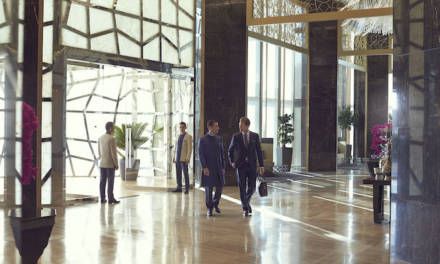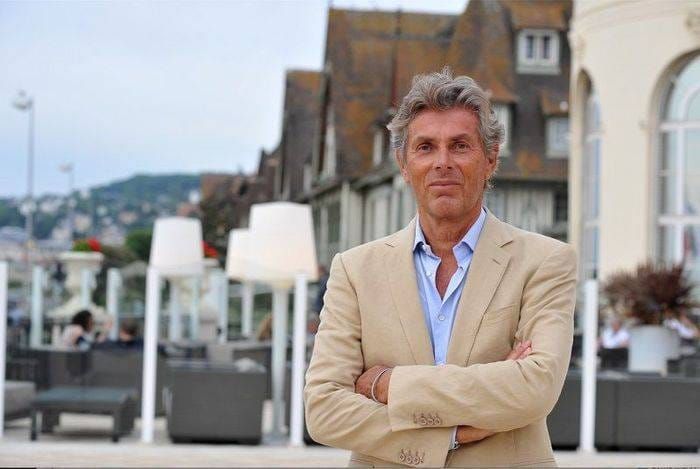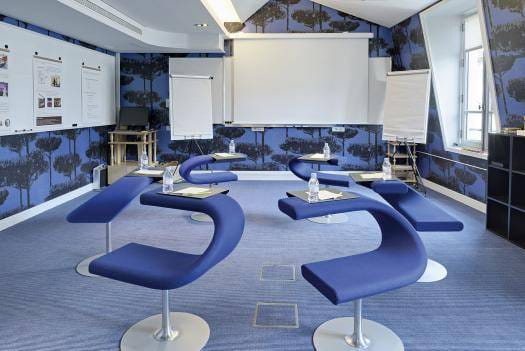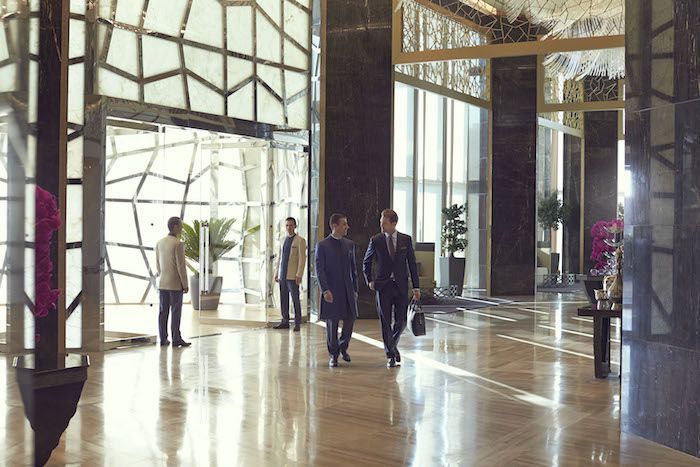I recently had the privilege of meeting with Sir Rocco Forte, the paterfamilias behind the luxury hotel group under his name: Rocco Forte Hotels. He helped me discover the unique art of welcoming at Rocco Forte Hotels.
How do you define the art of welcoming at Rocco Forte?
To start with, it’s the attitude of the staff and how you prepare them. You have to be customer-oriented as a business to welcome people in the right way. For all our staff, we have a special induction program that talks about the history of the family, the company, the hotel itself, as well as of the city the hotel finds itself in. So there’s a sense of heritage that is given to the staff.
What is also important is the attitude toward the customer. We don’t like stuffiness in our staff. We like our staff to be friendly and oriented toward the customer. I think this comes across in the interaction with the customer.
Whether it’s the Astoria in St Petersburg or the Hotel de Rome in Berlin or the de Russie in Rome, the approach is the same across each hotel. It’s interesting that when I first went to the de Russie In 1997, the staff never even smiled at the customers. The customer was considered a nuisance. Today, they have some of the best scores in customer satisfaction and in the staff engagement survey in the company.
How do you motivate your staff to bring out the best of themselves at Rocco Forte?
It is about motivating the team. When you do that in many different ways, there are many small things that come together to do that. The General Manager is very important. He has to be there for the customers, but he also has to be there for the staff. He’s got to be around the hotel, he’s got to visit the floors. Chamber maids have some of the hardest jobs in a hotel. The General Manager has to go around and see them on a regular basis to make them understand that they are appreciated. We have incentive programs for the staff. The training is very important because if staff are well-trained and understand how to do the job, then it’s much easier for them to do the job.
We do quite a lot of interaction training with our staff to help them interact with the customer. So many times you’ll go to a hotel and be asked the same question by 5 different people. That’s not good; it’s irritating for the customer.
The standard of food in the staff canteen, the reward system, the recognition system in the hotel—all of these things come together and are important. But it starts with the general manager. We must understand the importance of the staff and that the staff at the end of the day are the product that one is delivering to the customer.
What is your vision for technology in your hotels?
Technology, insofar as it’s customer-facing, you have to keep up with the various gadgets that people have in their homes and provide them in the hotel rooms. Big television screens are one aspect; the speed of Wi-Fi is another important one. Some hotels aim for sophisticated lighting systems controlled by an iPad. For someone who is of more advanced age and who is not technologically very able, they’re a nightmare. I sometimes have to spend half an hour to work out how to switch off the lights. I prefer to have one switch that switches off the lights, which is the old-fashioned way. With our hotels, in terms of having an iPad to deal with everything, we haven’t moved in that direction yet.
What is your vision of the future for Rocco Forte Hotels?
Everybody always asks what is the luxury hotel of the future. The luxury hotel of today is not that different to what it was 50 years ago. The sense of the service that you give to the customer has always got to be the primary factor, as well as the personalization and the service to the individual customer. Obviously, all the modern technology and things like that come in, and hotels have to keep up with that. But it’s an evolution rather than anything dramatic and new which is going to change things. There’s a lot of bullshit talk about hotels and trends, and many companies say they’re doing this and doing that, but at the end of the day, the underlying factors are always the same ones.
Laurent Delporte, an editor and conference speaker, is a strategic expert in the sector of hotels. A visionary, he brings his unique look on hotels in service to the decision-makers in the industry, whether to enhance the development of new projects or strategic visions.
Laurent has visited and audited over 350 hotels across the world and also participates in mystery visits to provide quality control for the world’s finest hotels.


 HOME
HOME













